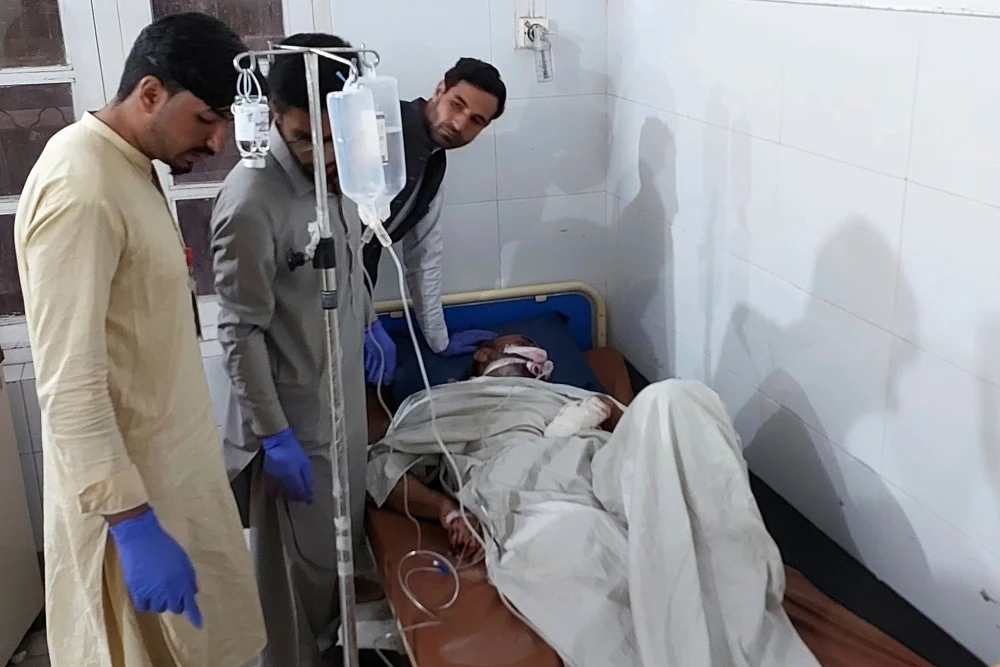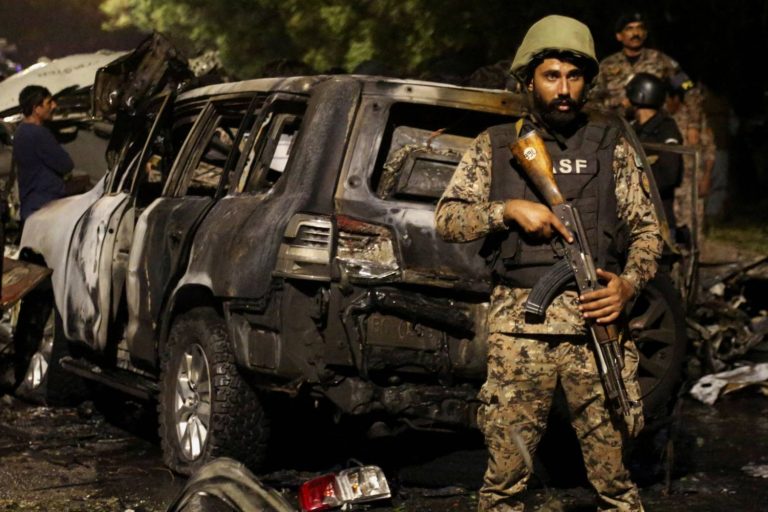Gunmen opened fire on passenger vehicles in a tribal area of northwestern Pakistan on Thursday, killing at least 38 people and wounding 29, according to Khyber Pakhtunkhwa province’s chief secretary, Nadeem Aslam Chaudhry.
The attack, which took place in the Kurram tribal district, also claimed the lives of a woman and a child, Chaudhry confirmed. He called it “a major tragedy” and warned that the death toll could rise.
The Kurram region has long been a flashpoint for tensions between armed Shia and Sunni Muslims over a land dispute near the Afghan border.
Two convoys of passenger vehicles were traveling on Thursday, one from Peshawar to Parachinar and the other from Parachinar to Peshawar, when armed men opened fire on them, said Ziarat Hussain, a local resident of Parachinar. Hussain, who spoke to Reuters by telephone, confirmed that his relatives were among the passengers traveling from Peshawar in the convoy.

The gunmen targeted the vehicles as they made their way through the Kurram tribal district, a region known for its long-standing tensions. Hussain described the attack as ruthless, with no warning or provocation. The assailants opened fire indiscriminately, causing panic and chaos among the passengers.
The gunmen then fled the scene, leaving behind a trail of destruction. Emergency services rushed to the area, and local residents helped transport the wounded to nearby hospitals. The death toll quickly rose as authorities confirmed the fatalities, including a woman and a child among the victims.
The attack has shocked the region, drawing widespread condemnation. President Asif Ali Zardari issued a statement shortly after the incident, strongly condemning the attack on the passenger vehicles. He expressed his deep sorrow over the loss of life and assured that authorities would investigate the incident thoroughly to bring the perpetrators to justice.
The Pakistani government, alongside provincial officials, has vowed to take swift action to prevent further violence in the area. Security forces have reportedly launched a search operation in the region, looking for the gunmen responsible for the attack.
The attack also highlighted the continuing instability in the Kurram tribal district, where sectarian violence between Shia and Sunni Muslims has persisted for decades. These tensions, compounded by a complex mix of tribal, religious, and political issues, have made the area a hotspot for violence.
In the wake of the attack, local leaders and religious groups have called for greater unity and peace between the different sects in the region. They also urged the government to improve security measures to protect civilians traveling in the area.
As the investigation continues, the families of the victims are left grieving, and many are calling for stronger action to address the root causes of the violence that has plagued their region for so long. The attack serves as a grim reminder of the fragile security situation in northwestern Pakistan, where such incidents have become tragically common.

